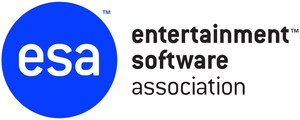
U.S. District Court Issues Injunction Against Chicago Transit Authority
Judge Rules Chicago Transit Authority Cannot Ban Computer and Video Game Ads
WASHINGTON, Jan. 8 /PRNewswire-USNewswire/ -- The United States District Court for the Northern District of Illinois granted the Entertainment Software Association (ESA) a preliminary injunction in its suit against the Chicago Transit Authority (CTA), the ESA said today. The case, which the ESA filed in July 2009, challenges CTA's prohibition of certain computer and video game advertisements as a violation of the guarantees of free speech under the First Amendment to the United States Constitution. In her opinion, Judge Rebecca R. Pallmeyer stated, "...the advertisements the CTA wishes to ban promote expression that has constitutional value and implicates core First Amendment concerns."
"This ruling is a win for Chicago's citizens, the video game industry and, above all, the First Amendment," said Michael D. Gallagher, president and CEO of the ESA, which represents U.S. computer and video game publishers. "It is our hope that the CTA sees the futility of pursuing this case further. To do so will waste taxpayer money and government resources. Chicago deserves better and we look forward to bringing this matter to an end."
ESA argued that CTA's Ordinance 008-147, which took effect in January 2009, unfairly targeted the entertainment software industry by prohibiting any advertisement that "markets or identifies a video or computer game rated 'Mature 17+' (M) or 'Adults Only 18+' (AO)." The ESA further contended the ordinance unconstitutionally "restricts speech in a public forum that is otherwise open to all speakers without a compelling interest for doing so." In addition, the ESA's complaint stated that the ordinance impermissibly discriminates on the basis of viewpoint and ignores less restrictive means of achieving the supposed ends of the ordinance. The court ruled that the ESA was likely to succeed on the merits of these claims at trial and, therefore, blocked enforcement of the ordinance until the case could be finally resolved.
The ESA also contended that the CTA's ordinance is unnecessary because game-related marketing is already subject to the Entertainment Software Rating Board's Advertising Review Council, which strictly regulates computer and video game advertisements that are seen by the general public. The Entertainment Software Rating Board assigns computer and video games ratings and content descriptors, which are both displayed on advertisements for those games.
The Entertainment Software Association is the U.S. association dedicated to serving the business and public affairs needs of companies publishing interactive games for video game consoles, handheld devices, personal computers, and the Internet. The ESA offers services to interactive entertainment software publishers including a global anti-piracy program, owning the E3 Expo, business and consumer research, federal and state government relations, First Amendment and intellectual property protection efforts. For more information, please visit www.theESA.com.
SOURCE Entertainment Software Association






Share this article